Leonardo da Vinci said that “the refuges discipline the mind” , a truth that gains greater value when we are immersed in a creative process of a literary nature. And it is that throughout history it has spun a unique, almost mystical relationship between a writer and space where he does his work.
It happened to the Spanish philosophers who locked themselves in shacks in the middle of the Meseta. A Virginia Woolf when she demanded the right of women to have that “room of their own to write”, or to Roald Dahl , author of Charlie and the Chocolate Factory, who decided to build a little brick house dedicated exclusively to creating in the garden of his own house.
In a world where we postpone tasks due to an Instagram notification, the afterwork entertains more than it inspires and the sound of traffic jams muffles the whispers of that creative universe, retiring to a writers' residency becomes the best shortcut to invite the muses.
From A Coruña to the desert of Almería, we discover some of these benchmark ‘shelters’ in our country.
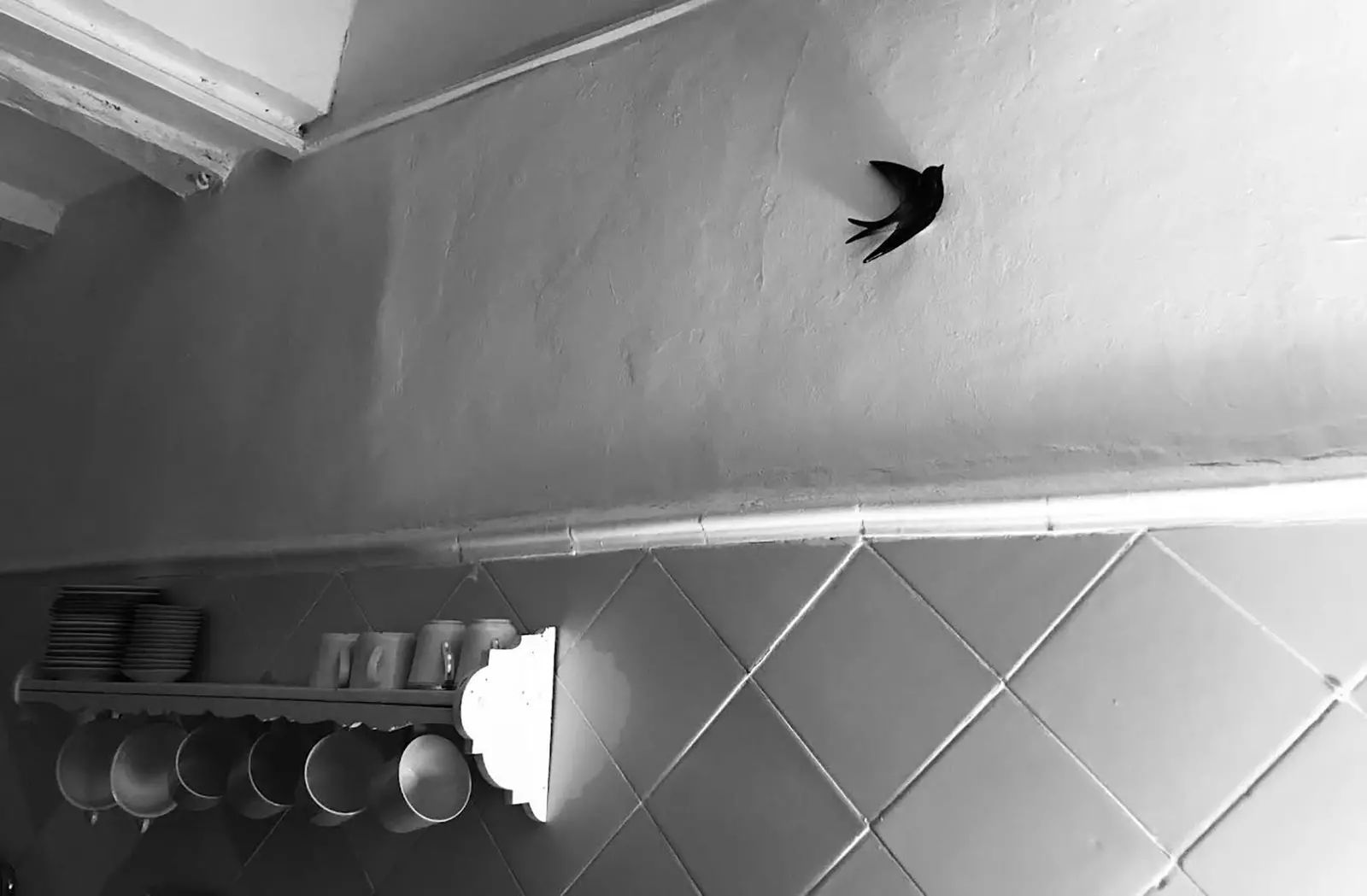
Detail of the kitchen in La Casa de Belmonte.
IN BELMONTE TO SEE THE SEA YOU HAVE TO LOOK AT THE SKY
last august four guests (two screenwriters and two writers) stayed at La House of Belmonte . Within a few days of his arrival, a construction site started in front of the house whose noise was unbearable at 8 in the morning.
The team didn't know where to go until an option occurred to them: the Hermitage of Saint Joseph! A privileged place that dominates three valleys from above and where absolute silence was ideal for these four authors. After the pertinent negotiations with the hermitage itself, every morning everyone left for their new workspace to later to eat in the forest and nap under the pines.
Nature is part of The House of Belmonte , a literary hostel located in the town of Belmonte de San José, in Teruel. A refuge that blooms Come in the matarraña and Lower Aragon, and which opened its doors in 2020 with a clear objective: to offer a stay to people who have a project, although the business idea is not always profitable.
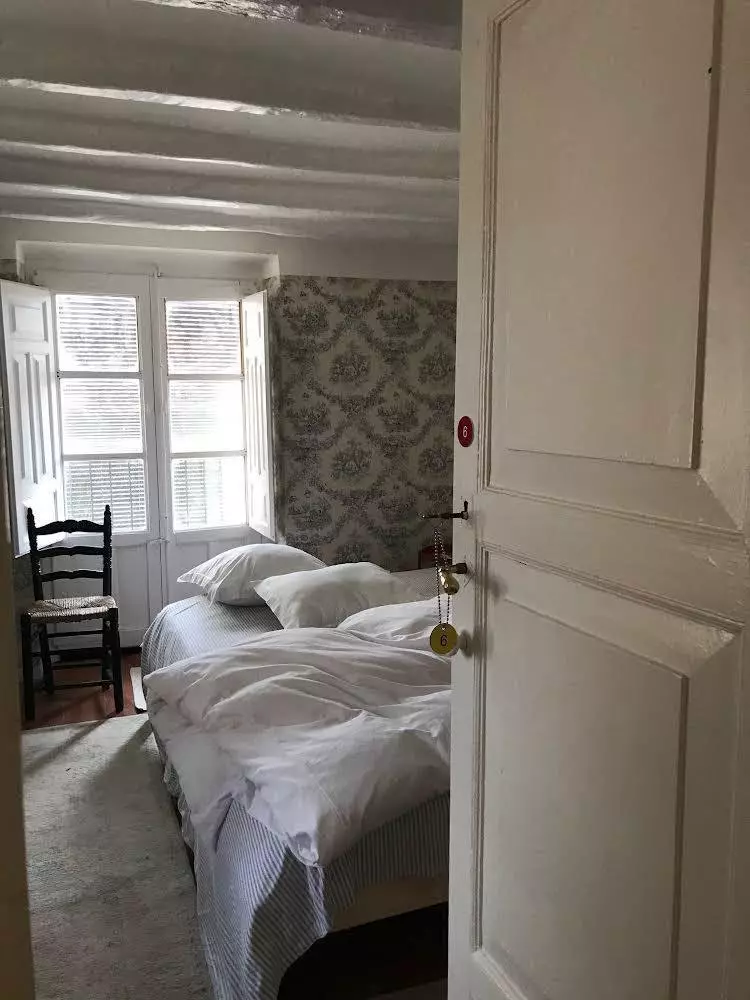
Room in The House of Belmonte.
“The idea came naturally when we came here in the midst of a pandemic to telework. We were looking for beauty and silence, so we bought a small garden to live in, with a house located a little higher. What at first seemed like a problem – what to do with that huge house – turned into a problem. a beautiful project that, in addition, we can combine with our work ", bill María Ruíz, owner of La Casa de Belmonte together with her partner, Jorge Gallén.
María admits that she excites her host talent, meet the people behind a work and see that their stay here allows them to move forward . Creative, sensitive and tenacious people with whom to share new moments: “on the last day of our stay, we always end up having a farewell dinner because our guest has become a friend”, adds María.
The "capacity" of La Casa de Belmonte is limited to four guests installed in an austere and welcoming space, organized to facilitate the exercise of writing. The decoration is functional and warm, with its fireplace and wooden tables, as well as a wine cellar that invites the best social gatherings.
A vital and mental sanctuary as a perfect extension of its surroundings and where writers like Rafa Boladeras have passed , screenwriter and writer of the book of short stories Cubatas en Taza (still to be published), or the novel Watson & Co, home detectives: The case of the bread and tomato mafia (Editorial Samarcanda).
“When I set out to prepare my second book, it was clear to me that I had to find time and space necessary. I organized with the gigs to have a month off and I came to La Casa del Belmonte. In fifteen days it was 50% finished of the first version”, says Rafa.
Also, staying at La Casa de Belmonte is the best excuse to promote a healthy lifestyle , since it is impossible to go to a McDonalds, ask for Uber or go to a joint at the last moment. Instead it imposes contemplative life, the sea is sought in the sky, and nature covers the literate visitor with its mantle.
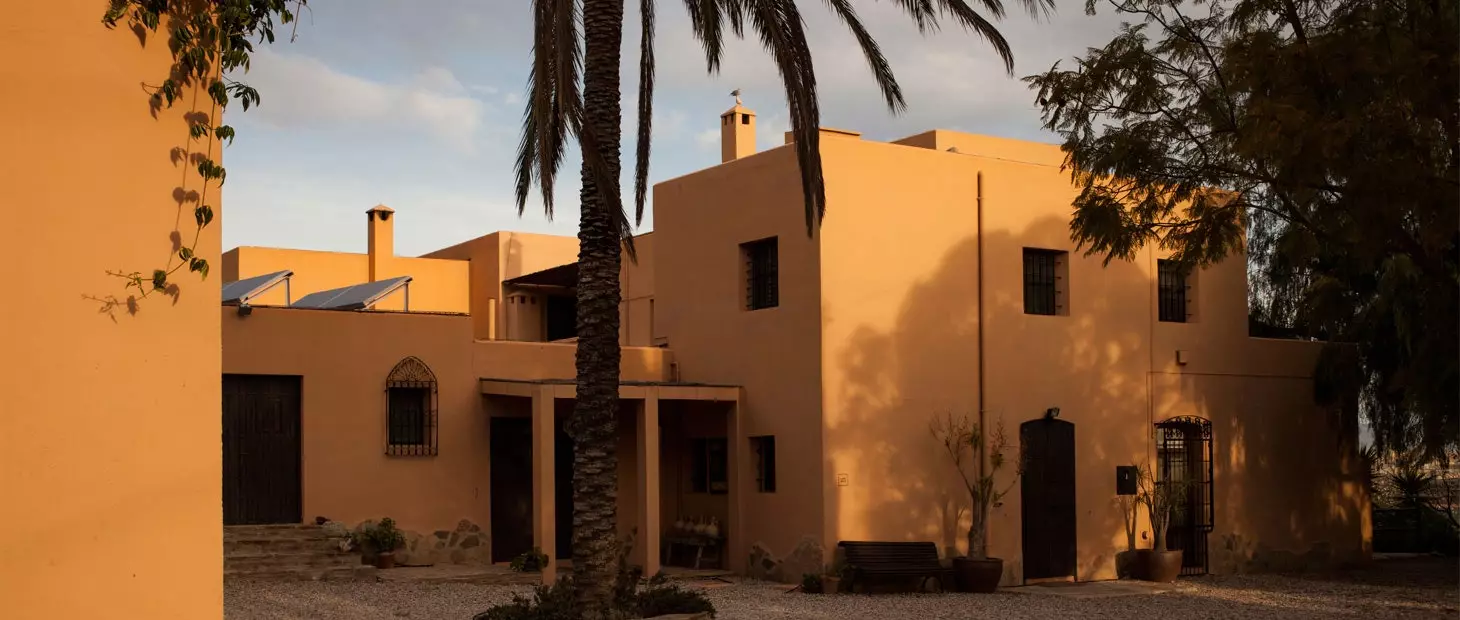
Facade of Valparaíso Foundation.
VALPARAÍSO FOUNDATION: WRITING BETWEEN ORCHARDS AND ARAB RUINS
“As in a spell, the voices and music of the village could not pass through the sleeping ring of the fire. time had dilated just like a heart pumping slowly, very slowly.”
(Excerpt from the novel Everything is burning, by Nuria Barrios)
Nuria Barrios , PhD in Philosophy from the Complutense University of Madrid and a master's degree in El País Journalism from the Autonomous University, finished part of his novel everything burns (Editorial Alfaguara) at the Valparaiso Foundation . It is a artists' residence nestled between orchards of orange and olive trees near Mojácar, in the province of Almería.
“Virginia Woolf said that for a woman to write, she needs a room of her own. the american writer Lorrie Moore goes one step further and affirms that fiction is the strange room attached to the house, the extra moon that goes around the earth without science knowing what it is about”, Nuria tells Condé Nast Traveler.
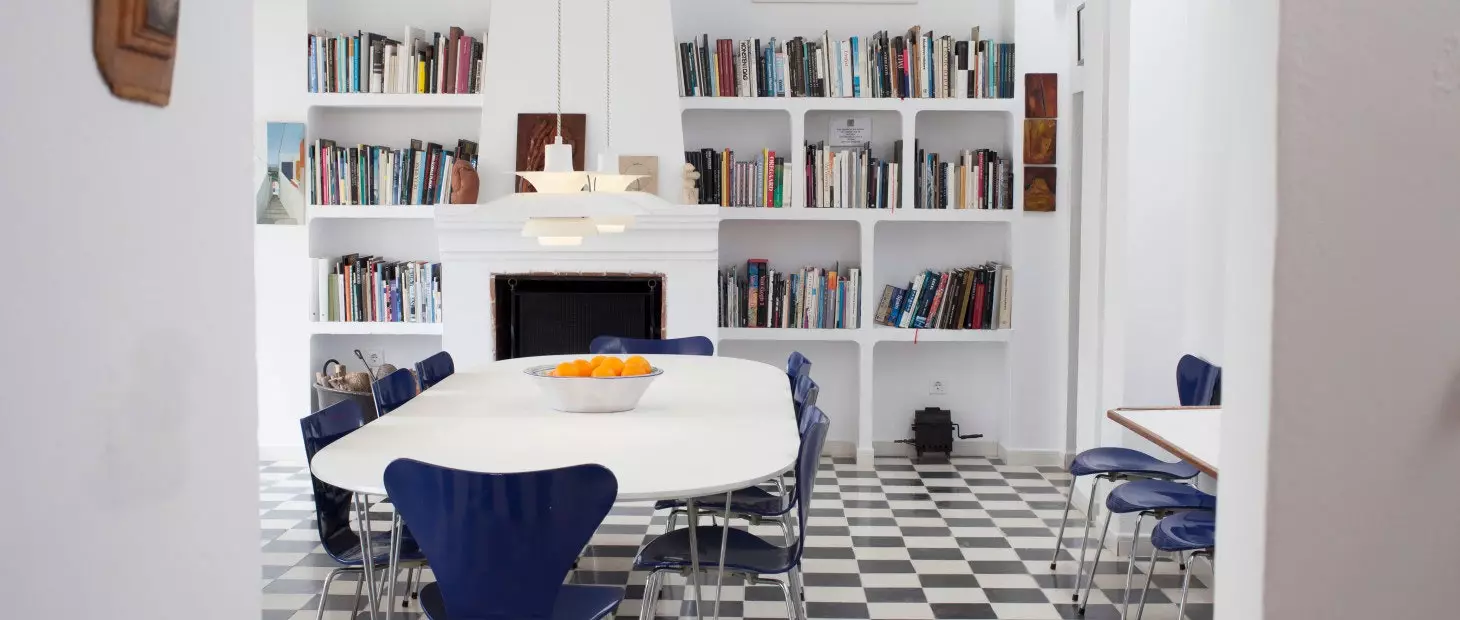
Hall in Valparaíso Foundation.
“A residence offers time, silence and the space where you can create your literary universe. And the Vaparaíso Foundation offers exactly that: the strange room where you can lock yourself up to write . Walking through its doors, you enter the invisible space where each creator dwells when he immerses himself in his work. ”
Fundación Valparaíso was born as an idea of Paul and Beatrice Beckett , both of Danish origin, during a study trip in 1955. After touring Spain they arrived in Almería, where they found a landscape so radically different from their country of origin, carved between mystical beaches and dormant volcanoes, who did not hesitate to settle in Mojácar in 1966 to germinate the project.
"At the Valparaiso Foundation we offer a quiet and peaceful place to focus on your creative work. We prepare the daily meals, clean and do the laundry”, says Teresa Santiago, Communication Director of the Foundation. "Also, every evening we meet at 8 pm to have a glass of wine and continue with dinner to exchange experiences”.
The Valparaiso Foundation works from two types of scholarships for their “Artists in Residence” program: the Beckett Scholarships for Danish Artists and the Ch Scholarships for Plastic Artists, although they also expect reactivate the Mojácar City Council Scholarships for Artists, of concession paralyzed during the pandemic.
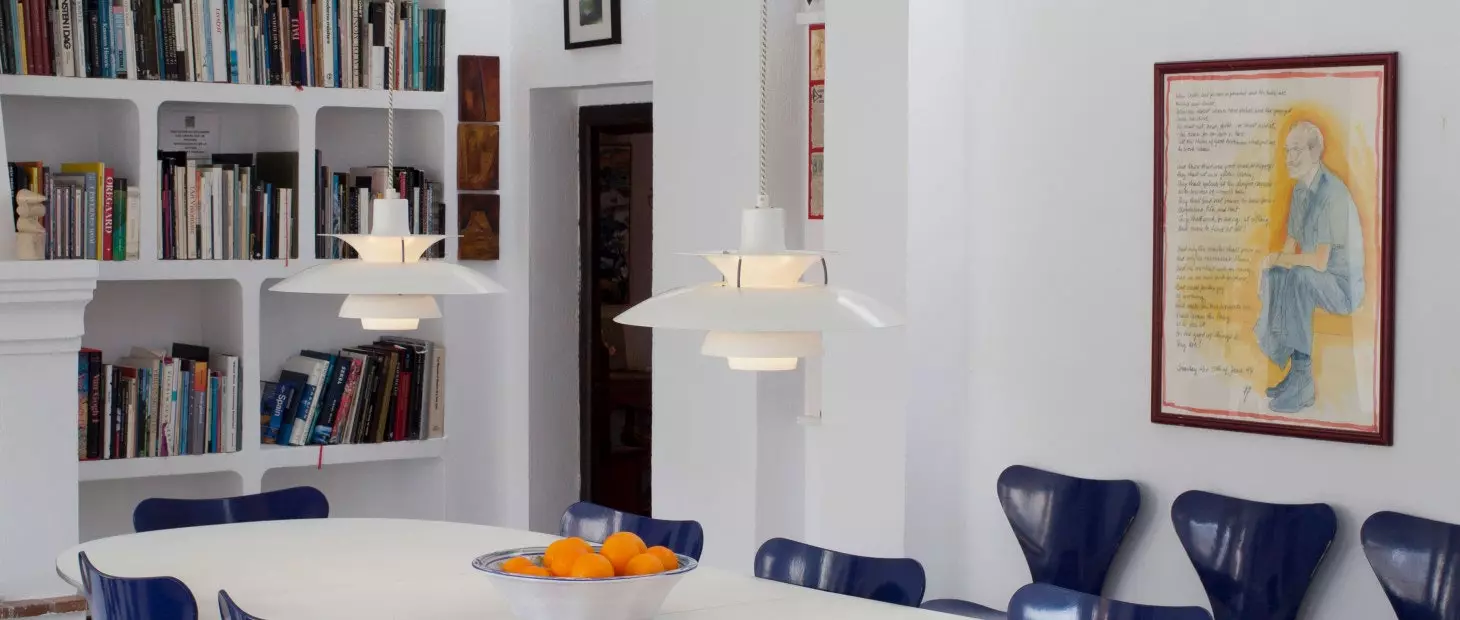
Stillness and creative exchange are essential in a literary residency.
Every one of the residents features a private room, plus access to a library of over 10,000 titles . All kinds of cultural events are held at the Foundation, in addition to promoting Excavations of ancient cisterns and mosques in the Arab town of Mojácar in collaboration with the Almeria town council. Apparently, silence not only awakens creativity, but also the secrets of the world.
RESIDENCE 1863: FROM A CORUÑA TO THE WORLD
The island of Rhodes, Munich, the countryside of Beijing or Hawthornden Castle in Scotland. Many have been scenarios and literary residences where the prestigious Galician poet Yolanda Castaño has developed her work . Life experiences that prompted her to set up your own writers haven.
The 1863 Residence was inaugurated in February 2019 together with Raúl Zurita, Chilean poet and Queen Sofía Prize winner, in a seaside apartment in the heart of A Coruña, in front of the Rosalía de Castro theater . In fact, the number 1863 refers to the year in which the apartment was erected, the same as the publication of Cantares gallegos de Rosalia de Castro, work that marked the literary Resurgence of Galicia, or current of the "Rexurdimento".
A space carved out of chestnut beams and stone walls that combines tradition with modernity after years of intense travel for the poet and literary criticism.
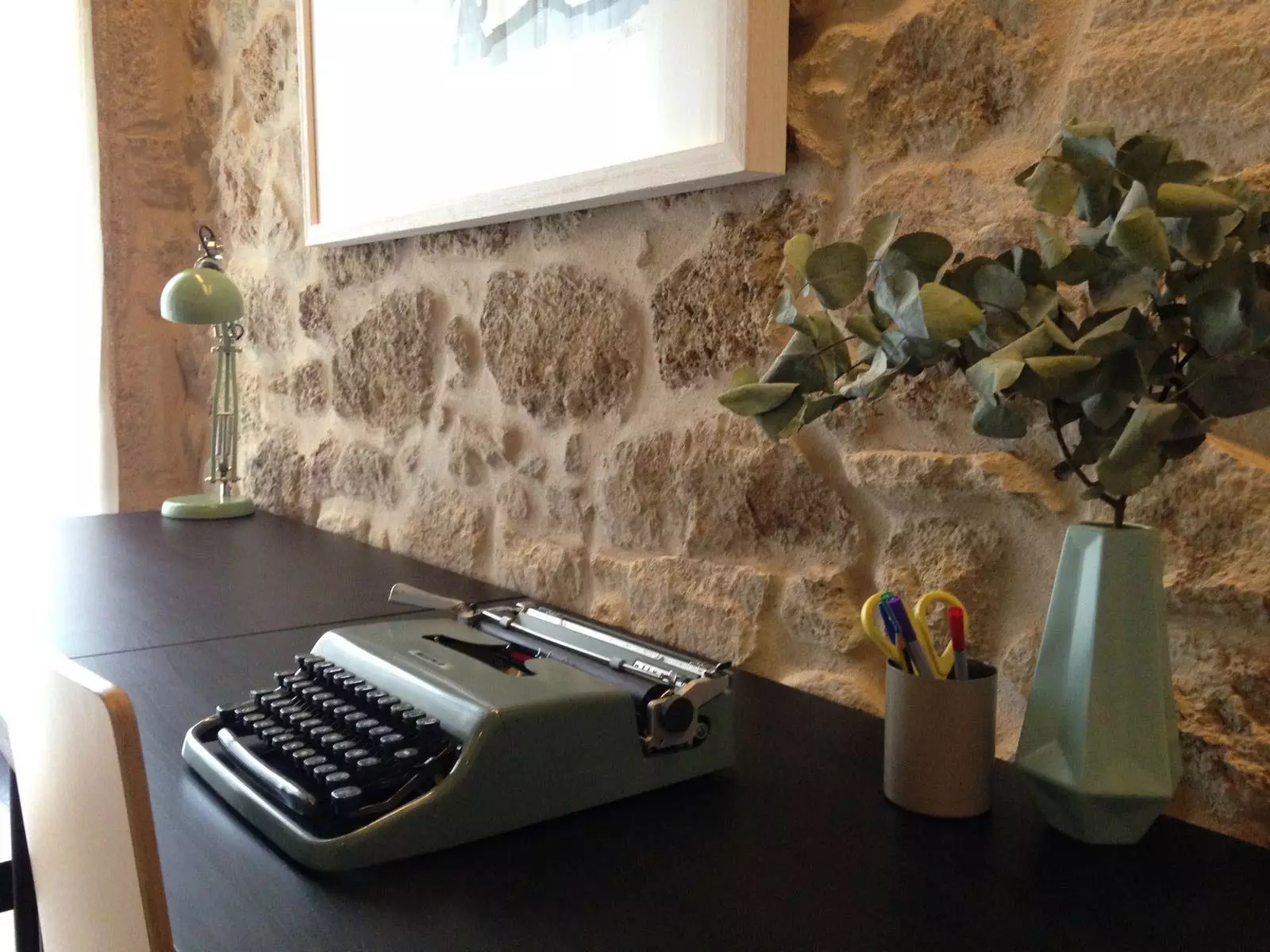
A place to unleash creativity.
"It's my life project," confesses Yolanda, whose residence is private and focuses on territorial exchange between writers through scholarships and agreements. “The first few months writers arrived from the Philippines or the Dominican Republic, among other countries, but after the pandemic we had to close for a year. Right now we have two Georgian authors, because with Georgia we have the main current agreement. We also send Galician writers abroad at the same time that we receive a writer from that country”.
The objective is the exchange of stories from the "Balcony of the Atlantic" to the rest of the world, since here it is intended that the guests of the residence become not only guests, but also ambassadors of this space, of a street, of the city : “We had a Filipino resident who told us that she had always lived in Manila very close to Orense Street. When she came she said: I've finally found out what the hell that 'Orense' thing was!", says Yolanda, who after years writing in the most picturesque places in the world ends up this time in her own refuge, driven by a country that does not always make things easy for those who seek to write, simply.
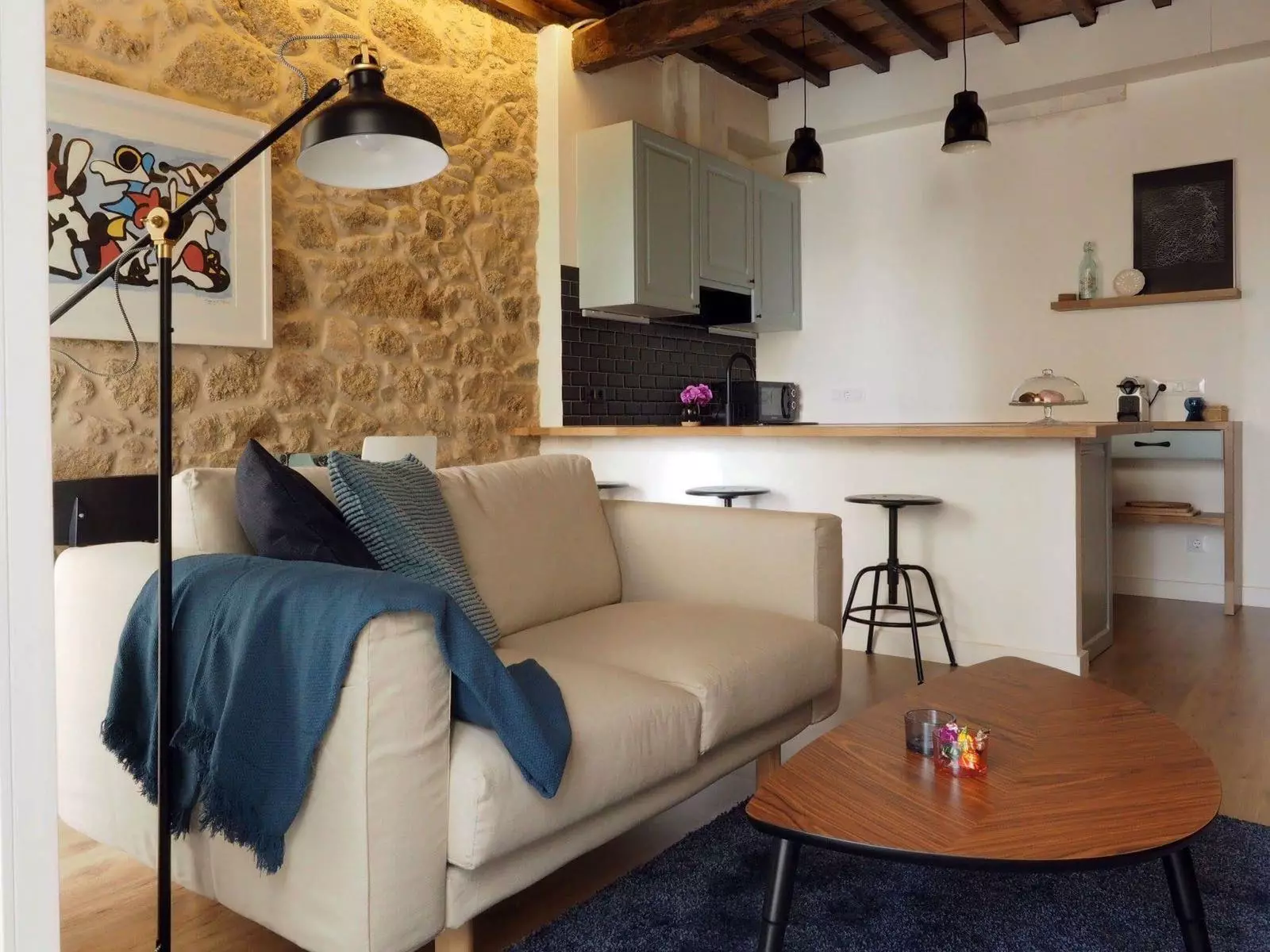
Residence 1863, in A Coruña.
“In countries like the United States or France there is a greater culture around writers' residencies. In Spain, however, there are literary prizes that are supposed to be a posteriori stimuli, that is, the author makes the vital effort to write and is rewarded”, Yolanda affirms in a somewhat resigned tone: “There is a great lack of faith and conviction in supporting literary creation in our country”.
This year, The Ministry of Culture has been involved in the Yolanda residence program in order to incorporate it into the Xacobeo 21-22 catalog . Our country may not be the greatest reference for those who seek to write full time, but there is no lack of voices that came to create new refuges, New starts.
